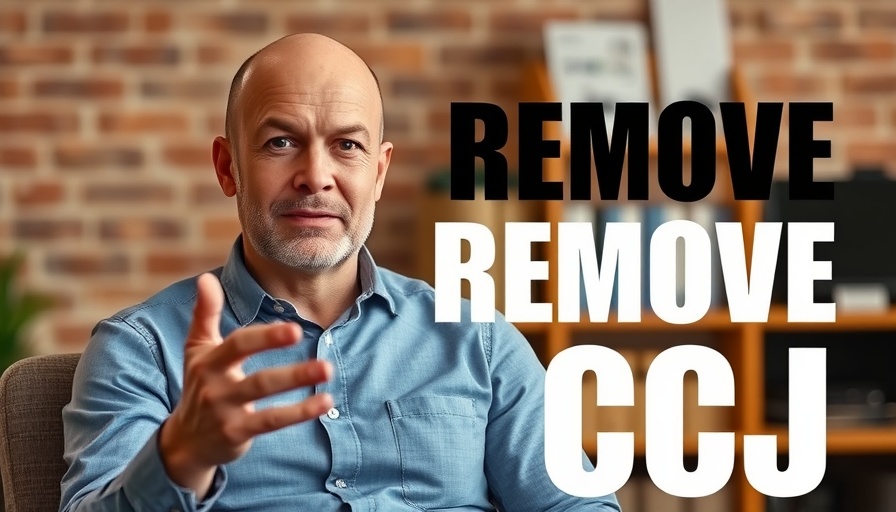
Understanding County Court Judgments: The Basics
Facing a County Court Judgment (CCJ) can feel like a dark cloud hanging over your financial future. But understanding what a CCJ is, and how it impacts your credit score, is the first step towards taking control of your financial life.
In 'Wipe CCJs Clean: How to Clear Your Record Fast', the discussion dives into effective strategies for removing County Court Judgments from your credit file and reclaiming financial stability.
A CCJ arises when a creditor takes legal action against you for not repaying a debt. It marks you as liable for the unpaid amount and is recorded on your credit file. This record significantly affects your creditworthiness, making it more challenging to secure loans or credit facilities in the future. If you’re feeling overwhelmed by the status of your credit, remember: you’re not alone, and there are steps available to clear your record.
How a CCJ Impacts Your Finances
Your credit file is your financial resume. It details everything from your payment history to any CCJs to which you may be subjected. Lenders refer to this file to assess how risky it would be to lend you money. A CCJ can drop your credit score substantially, which may lead to higher interest rates, if you're approved for loans at all.
Moreover, a low credit score can result in denied applications for mortgages or credit cards, putting a serious strain on renters or low-income earners who are already navigating financial hurdles.
Strategies to Clear Your CCJ
If you're grappling with the implications of a CCJ, there are pathways available to clear it from your record—fast. If you didn’t owe the debt, you have the right to submit a defense form before the CCJ is issued. Should you receive a notice, don’t panic; instead, act swiftly.
For those who have a CCJ already on their record, you can request the court to set it aside by filling out a CCJ removal form (N244) and paying the associated fee. If you settle the debt within 30 days of the judgment's issuance, you could also have it removed—a crucial step towards reclaiming your financial health.
Know Your Rights: Handling CCJs Effectively
Educating yourself about your rights and options is pivotal. You are entitled to defend yourself against claims you don’t agree with and engage in dialogue with creditors about potential repayment plans. It’s also crucial to understand that once a CCJ has matured for six years, it will automatically vanish from your credit file—though this doesn't alleviate the financial stress in the meantime.
In addition, if you’ve paid the debt, you can instruct the court to amend your record, showing the amount has been settled. This not only helps restore your creditworthiness but also demonstrates responsibility to future lenders—a welcome green flag!
Future Financial Stability: What Steps Can You Take?
It’s natural to feel disheartened under financial pressure. However, the journey doesn’t have to feel impossible. Clear financial objectives and an understanding of budgeting can dramatically improve your situation. As someone dealing with debt or financial anxiety, you can start reconstructing your credit by setting up a budget, consolidating debts, and practicing disciplined financial behaviors.
Seeking help is also a vital part of the process. Accessing resources like credit counseling services and speaking with financial advisers offer personalized guidance. You don’t have to walk this path alone—support is available.
Taking Action: What’s Your Next Step?
If you’re ready to take charge of your financial health and wipe your CCJs clean, start by reaching out for help today. We encourage you to check out our form, where you can answer some straightforward questions related to your debt and living situation, which will connect you with trusted partners who can address your unique financial challenges.
Taking the first step is empowering; don’t let CCJs stifle your financial potential. You can make informed decisions and start paving your way to a brighter financial future.
 Add Row
Add Row  Add
Add 




Write A Comment